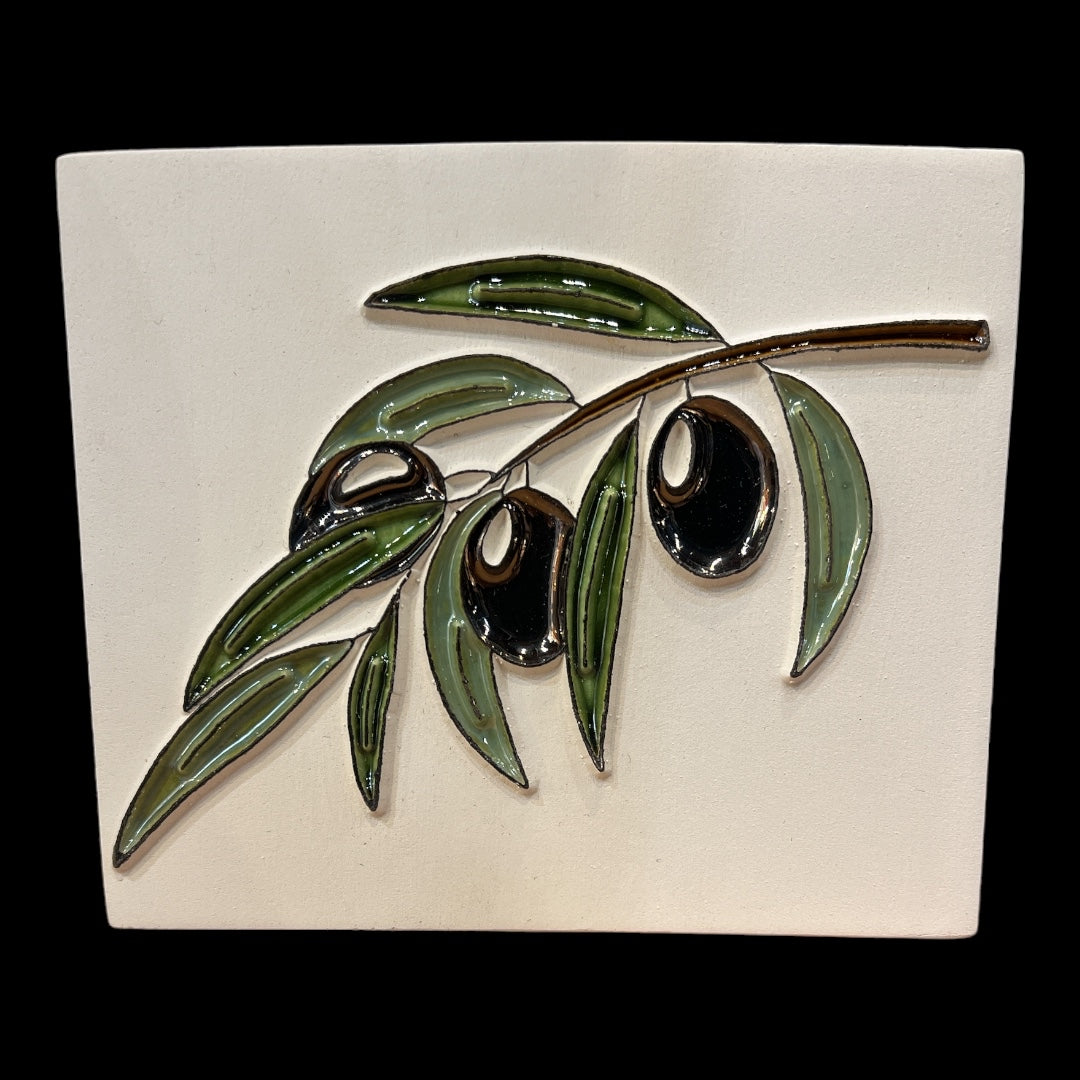Terre de Fragrance
“Brin d’Olivier” essential oil diffuser table
“Brin d’Olivier” essential oil diffuser table
Couldn't load pickup availability
It is a painting made of terracotta and hand painted with enamel.
IMPORTANT: Terracotta support included in the price, and wall mounting must be ordered.
The olive tree and its fruits, olives, are symbols rich in meaning in various cultures around the world. Here are some of the most notable symbolisms associated with the olive tree and the olive:
Symbolism of the Olive and the Olivier
-
Peace and Reconciliation :
- The olive branch is a universal symbol of peace. This association dates back to Antiquity, particularly in Greco-Roman culture, where offering an olive branch signified the end of hostilities and the wish for reconciliation.
- In the Bible, a dove returns to Noah with an olive branch in its beak, signifying the end of the Flood and the return of peace to Earth.
-
Wisdom and Abundance :
- In ancient Greece, the olive tree was sacred to Athena, goddess of wisdom and war. It symbolized wisdom, victory and abundance.
- The ancient Greeks considered olive oil a gift from the gods, essential for cooking, religious rituals and personal care.
-
Hope and Renewal :
- The olive tree, with its ability to live for centuries and regenerate even after being cut down or burned, symbolizes hope, resilience and renewal.
- It also represents continuity and endurance, being a tree that can survive and thrive in harsh conditions.
-
Sacrality and Purity :
- In many Mediterranean cultures, olive oil is used in religious rituals for anointing and blessing, symbolizing purity and sanctification.
- In Judaism, pure olive oil was used to light the Menorah in the Temple in Jerusalem, symbolizing divine light.
-
Fertility and Prosperity :
- The olive tree is often associated with fertility and prosperity. Olives and olive oil are essential products in Mediterranean economies and cultures, symbolizing abundance and wealth.
Cultural Examples:
-
Ancient Greece :
- The olive tree was a symbol of the city of Athens, and the Athenians believed that Athena gave them the first olive tree. The laurel wreath made of olive leaves was a reward for the winners of the Olympic Games.
-
Ancient Rome :
- The Romans used laurel wreaths (olive leaves) to honor military heroes and emperors. Olive oil was also a central part of their diet and personal care.
-
Christianity :
- The olive branch is a symbol of peace and reconciliation in Christianity, often associated with biblical events such as the episode of Noah's dove.
- Olive oil is used in the sacraments of anointing and confirmation, symbolizing divine grace.
-
Modern Culture :
- The olive branch is used in the symbols of many international organizations, including the United Nations, to represent world peace and international cooperation.
Conclusion :
The olive tree and its fruits, olives, are deeply rooted symbols in various cultures, representing peace, wisdom, abundance, and resilience. Their importance endures through the ages, transcending borders and eras to continue to inspire and unite people.

